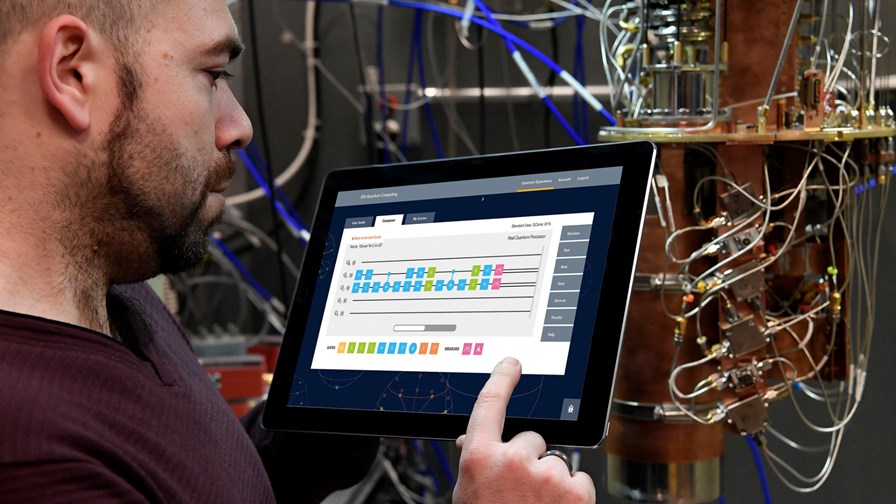
© Flickr/cc-licence/IBM Research
- Cloud-enabled quantum computing platform
- Delivered via the IBM Cloud onto any desktop or mobile device
- IBM envisions mid-sized quantum processors of 50 qubits by the next decade
Excuse the quantum physics pun in the headline, but as the great Werner Heisenberg once said: “The atoms or elementary particles themselves are not real; they form a world of potentialities or possibilities rather than one of things or facts.” Indeed, as the equally great Richard Feynman added some years later: "Nobody understands quantum mechanics."
But if the world’s greatest physicists struggled (and still struggle) to come to terms with quantum physics, what chance the rest of us? IBM may not help us better understand the mind-bending absurdities of quantum mechanics, but at least they are giving us a chance to play with one offshoot of this mysterious world – quantum computing.
Quantum computing uses some of the many phenomena of quantum mechanics – such as superposition and entanglement – to perform operations on data. Whereas regular computers require data to be encoded into binary digits (in one of two definite states; 0 or 1), quantum computing uses quantum bits (qubits) that can be in a superposition of states. Sounds crazy? Welcome to the Wonderland that is quantum physics (I studied the subject for 3 years and still find it preposterous and logic-defying, although strangely compelling…)
IBM believes quantum computing is the future of computing and has the potential to solve certain problems that are impossible to solve on today’s supercomputers. To that end, it has built a quantum processor that users can access through what it claims is a first-of-a-kind quantum computing platform delivered via the IBM Cloud onto any desktop or mobile device.
The cloud-enabled quantum computing platform, called IBM Quantum Experience, will allow users to run algorithms and experiments on IBM’s quantum processor, work with the individual qubits, and explore tutorials and simulations around what might be possible with quantum computing.
“Quantum computing is becoming a reality and it will extend computation far beyond what is imaginable with today’s computers,” said Arvind Krishna, SVP and director, IBM Research. “This moment represents the birth of quantum cloud computing. By giving hands-on access to IBM’s experimental quantum systems, the IBM Quantum Experience will make it easier for researchers and the scientific community to accelerate innovations in the quantum field, and help discover new applications for this technology.”
The quantum processor is composed of five superconducting qubits and is housed at the IBM T.J. Watson Research Center in New York, and is IBM’s attempt towards building a universal quantum computer – one that can be programmed to perform any computing task. Such a computer still does not exist today, but IBM envisions medium-sized quantum processors of 50-100 qubits to be possible in the next decade (for comparison, even a 50 qubit computer would be more powerful than today’s fastest supercomputers).
“It is a beautiful challenge to pursue the path to build the first universal quantum computer, but it requires us to change how we think about the world,” said Dario Gil, VP of science and solutions, IBM Research. “Access to early quantum computing prototypes will be key in imagining and developing future applications. If you want to understand what a true quantum computer will do for you and how it works, this is the place to do it. You won’t experience it anywhere else.”
IBM says this leap forward in computing could lead to the discovery of new pharmaceutical drugs and completely safeguard cloud computing systems. It could also unlock new aspects of artificial intelligence and search large volumes of big data.
Email Newsletters
Sign up to receive TelecomTV's top news and videos, plus exclusive subscriber-only content direct to your inbox.




